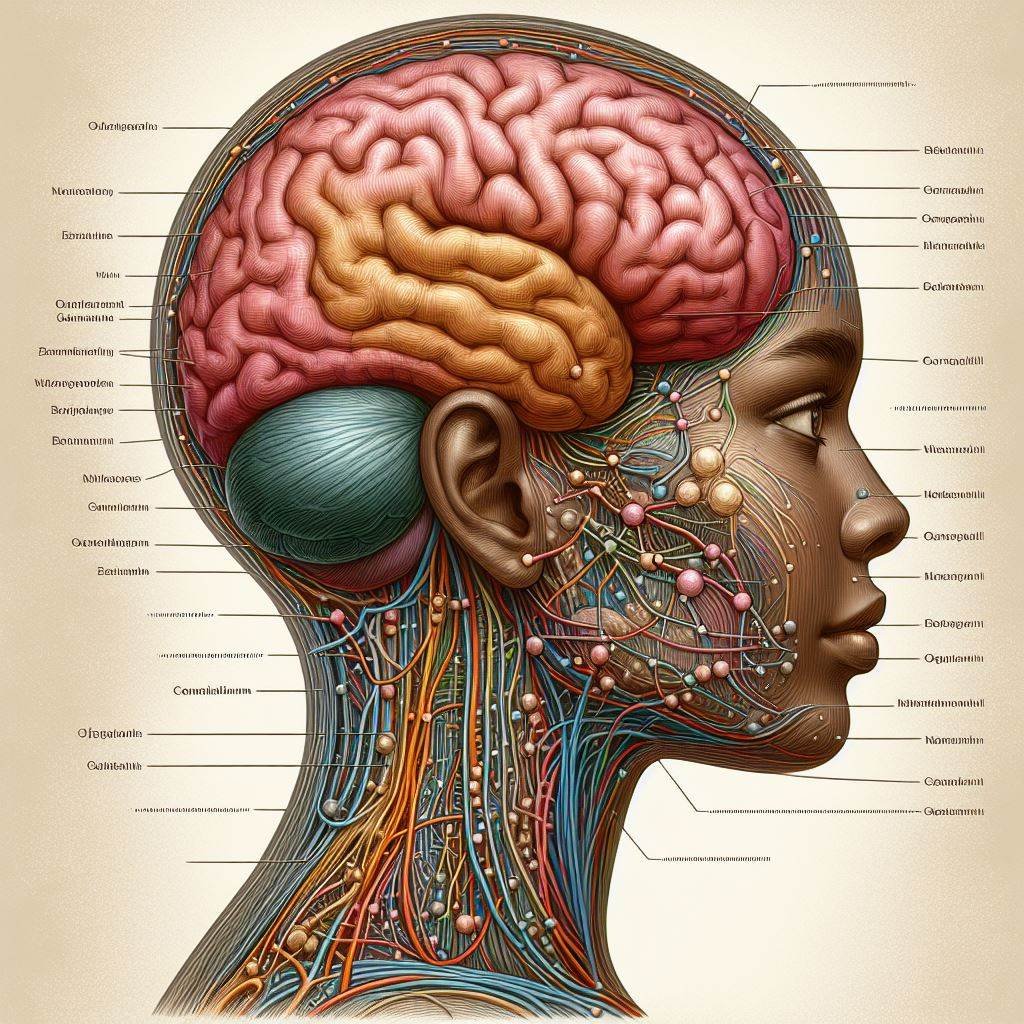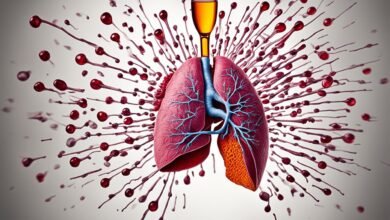Your brain is a complex organ that requires a wide range of nutrients to function properly. From fats to proteins, amino acids to micronutrients, each component has a distinct impact on your brain’s functioning, development, mood, and energy. In fact, what you eat can directly affect your brain’s performance, making it crucial to understand the relationship between your diet and your brain health.
The impact of food on your brain is multifaceted. For instance, the fats in your brain, particularly omega-3 and omega-6 fatty acids, play a crucial role in maintaining cell membranes and preventing degenerative brain conditions. Meanwhile, proteins and amino acids help regulate mood, sleep, attentiveness, and weight, and a balanced combination of brain messengers is essential for maintaining a stable mood. In this article, we’ll explore the fascinating relationship between your diet and your brain health, and provide you with some key takeaways to help you optimize your eating habits for optimal brain function.

Key Takeaways
- Your brain requires a wide range of nutrients, including fats, proteins, amino acids, and micronutrients, to function properly.
- Omega-3 and omega-6 fatty acids are essential for maintaining cell membranes and preventing degenerative brain conditions.
- A balanced combination of brain messengers is essential for maintaining a stable mood, and a varied diet of nutrient-rich foods is critical for sustained brain power.
Brain Composition
Fats
Your brain is mostly composed of fats, also known as lipids. These fats play a crucial role in the creation and maintenance of cell membranes. The superstar fats in your brain are omega-3 and omega-6 fatty acids, which are essential fatty acids that must come from your diet. Eating omega-rich foods like nuts, seeds, and fatty fish is necessary to prevent degenerative brain conditions. However, long-term consumption of trans and saturated fats may compromise brain health.
Proteins and Amino Acids

Proteins and amino acids are the building blocks of growth and development. They contain the precursors to neurotransmitters, the chemical messengers that carry signals between neurons, affecting your mood, sleep, attentiveness, and weight. Amino acids have to compete for limited access to your brain cells. Therefore, a diet with a range of foods helps maintain a balanced combination of brain messengers, preventing your mood from getting skewed in one direction or the other.
Micronutrients
Like other organs in your body, your brain benefits from a steady supply of micronutrients. Antioxidants in fruits and vegetables strengthen the brain to fight off free radicals that destroy brain cells, enabling your brain to work well for a longer period of time. Micronutrients like vitamins B6, B12, and folic acid are also fundamental to brain health and mental decline prevention. Trace amounts of minerals like iron, copper, zinc, and sodium are also necessary for early cognitive development.
Carbohydrates
Your brain uses up to 20% of your body’s energy resources, despite only making up about 2% of your body weight. Most of this energy comes from carbohydrates that your body digests into glucose, or blood sugar. The frontal lobes are sensitive to drops in glucose, and a change in mental function is one of the primary signals of nutrient deficiency. The specific type of carbohydrates you eat affects your brain. High glycemic foods like white bread cause a rapid release of glucose into the blood, followed by a dip in blood sugar, attention span, and mood. On the other hand, oats, grains, and legumes have slower glucose release, enabling a steadier level of attentiveness. Opting for a varied diet of nutrient-rich foods is critical for sustained brain power.
Impact of Diet on Brain Function
Essential Fatty Acids
The fats in your brain, known as lipids, play a crucial role in brain function and development. Omega-3 and omega-6 fatty acids are essential for the creation and maintenance of cell membranes. These fatty acids have been linked to preventing degenerative brain conditions and must come from our diets. Foods rich in omega-3 and omega-6 fatty acids include nuts, seeds, and fatty fish.
Trans and Saturated Fats
While omega-3 and omega-6 fatty acids are good fats for your brain, long-term consumption of trans and saturated fats may compromise brain health. These fats can increase inflammation and oxidative stress, which can damage brain cells. Limiting your intake of foods high in trans and saturated fats, such as fried foods and processed snacks, is important for brain health.
Neurotransmitter Precursors
Amino acids, the building blocks of proteins, contain precursors to neurotransmitters. Neurotransmitters are chemical messengers that carry signals between neurons, affecting things like mood, sleep, attentiveness, and weight. A balanced combination of brain messengers helps maintain a stable mood. Foods rich in amino acids include meat, fish, eggs, and beans.
Mood and Food
The complex combinations of compounds in food can stimulate brain cells to release mood-altering norepinephrine, dopamine, and serotonin. A diet with a range of foods helps maintain a balanced combination of brain messengers, and keeps your mood from getting skewed in one direction or the other.
Antioxidants
Antioxidants in fruits and vegetables strengthen the brain to fight off free radicals that destroy brain cells, enabling your brain to work well for a longer period of time. Foods rich in antioxidants include blueberries, spinach, and kale.
Vitamin and Mineral Essentials
Micronutrients are essential to brain health and early cognitive development. Vitamins B6, B12, and folic acid are important for brain function and help prevent brain disease and mental decline. Trace amounts of the minerals iron, copper, zinc, and sodium are also fundamental to brain health. Foods rich in these nutrients include leafy greens, whole grains, and lean meats.
A varied diet of nutrient-rich foods is critical for sustained brain power. Your choices have a direct and long-lasting effect on the most powerful organ in your body. By choosing foods rich in essential fatty acids, amino acids, antioxidants, and vitamins and minerals, you can support your brain health and optimize your brain function.
Brain Energy Consumption
Your brain is a powerhouse that requires a lot of energy to function properly. Although it makes up only 2% of your body weight, it uses up to 20% of your energy resources. Most of this energy comes from carbohydrates that your body digests into glucose, or blood sugar.
The frontal lobes of your brain are particularly sensitive to drops in glucose levels. In fact, a change in mental function is one of the primary signals of nutrient deficiency. Assuming that you are getting glucose regularly, the specific type of carbohydrates you eat can affect your brain’s performance.
Carbohydrates come in three forms: starch, sugar, and fiber. Although they are all lumped into one total carb count on most nutrition labels, the ratio of the sugar and fiber subgroups to the whole amount affects how the body and brain respond. High glycemic foods, like white bread, cause a rapid release of glucose into the blood, followed by a dip in blood sugar levels. This can result in a decrease in attention span and mood. On the other hand, oats, grains, and legumes have a slower glucose release, providing a steadier level of attentiveness.
In order for your brain to efficiently transform and synthesize valuable nutrients, it needs fuel, and lots of it. A varied diet of nutrient-rich foods is critical for sustained brain power. Antioxidants in fruits and vegetables strengthen the brain to fight off free radicals that destroy brain cells, enabling your brain to work well for a longer period of time. Micronutrients like the vitamins B6, B12, and folic acid, as well as trace amounts of minerals such as iron, copper, zinc, and sodium, are also fundamental to brain health and early cognitive development.
In summary, the food you eat has a direct and long-lasting effect on the most powerful organ in your body – your brain. Opting for nutrient-rich foods, particularly those high in omega-3 and omega-6 fatty acids, proteins and amino acids, and a variety of carbohydrates, can help maintain a balanced combination of brain messengers and keep your mood from getting skewed in one direction or the other.
Carbohydrates and Mental Function
Types of Carbohydrates
Carbohydrates are a crucial source of energy for your brain. They come in three forms: starch, sugar, and fiber. While most nutrition labels lump them into one total carb count, the ratio of sugar and fiber subgroups to the whole amount affects how your body and brain respond.
Starchy carbohydrates, such as potatoes, bread, and pasta, are broken down into glucose and absorbed into the bloodstream. These carbohydrates are important for providing energy to the brain. However, they can cause a rapid release of glucose into the blood, leading to a quick spike in energy levels followed by a dip.
Sugars, such as those found in candy and soda, are also broken down into glucose. However, they are absorbed into the bloodstream more quickly than starchy carbohydrates, leading to a rapid spike and drop in blood sugar levels.
Fiber, found in fruits, vegetables, and whole grains, is not broken down into glucose. Instead, it passes through the digestive system largely undigested. Fiber slows down the absorption of glucose into the bloodstream, leading to a steadier level of attentiveness.
Glycemic Effects on the Brain
The brain uses up to 20% of the body’s energy resources, most of which comes from carbohydrates that the body digests into glucose. The frontal lobes are particularly sensitive to drops in glucose levels, with a change in mental function being one of the primary signals of nutrient deficiency.
High glycemic foods, such as white bread and candy, cause a rapid release of glucose into the blood, leading to a quick spike in energy levels followed by a dip. This dip can cause a decrease in attention span and mood.
On the other hand, low glycemic foods, such as oats, whole grains, and legumes, have slower glucose release, leading to a steadier level of attentiveness.
In order to maintain sustained brain power, it is critical to opt for a varied diet of nutrient-rich foods, including a mix of starchy carbohydrates, fiber, and low glycemic foods. This can help regulate glucose levels and maintain a steady level of attentiveness.
Diet Diversity and Brain Health
Your brain is a complex organ that requires a variety of nutrients to function optimally. The food you eat affects your brain’s development, energy levels, mood, and overall functioning.
Fats
The fats in your brain, particularly omega-3 and omega-6 fatty acids, are essential for maintaining cell membranes and preventing degenerative brain conditions. Foods rich in these fatty acids, such as nuts, seeds, and fatty fish, should be included in your diet. However, long-term consumption of trans and saturated fats may compromise brain health.
Proteins and Amino Acids
Proteins and amino acids are the building blocks of growth and development and play a crucial role in manipulating how you feel and behave. Amino acids contain precursors to neurotransmitters, which carry signals between neurons and affect mood, sleep, attentiveness, and weight. A diet with a variety of foods helps maintain a balanced combination of brain messengers and keeps your mood from getting skewed in one direction or the other.
Micronutrients
Micronutrients, such as antioxidants, vitamins B6, B12, and folic acid, and trace minerals like iron, copper, zinc, and sodium, are fundamental to brain health and cognitive development. These nutrients help fight off free radicals that destroy brain cells and prevent brain disease and mental decline.
Carbohydrates
Carbohydrates provide the energy your brain needs to function efficiently. Most of this energy comes from carbohydrates that your body digests into glucose or blood sugar. The type of carbohydrates you eat affects your brain’s response. High glycemic foods, such as white bread, cause a rapid release of glucose into the blood, followed by a dip that affects your attention span and mood. Opting for slow-release carbohydrates, such as oats, grains, and legumes, can provide a steadier level of attentiveness and sustained brain power.
In conclusion, a varied diet of nutrient-rich foods is critical for maintaining brain health. Including a variety of fats, proteins, micronutrients, and carbohydrates in your diet can help keep your brain functioning optimally.
Conclusion
Your brain is a complex organ that requires a variety of nutrients to function properly. Fats, proteins, amino acids, micronutrients, and glucose all play a crucial role in brain health, development, mood, and energy. Omega-3 and omega-6 fatty acids are essential for preventing degenerative brain conditions, while trans and saturated fats can compromise brain health. Amino acids contain the precursors to neurotransmitters, affecting mood, sleep, attentiveness, and weight. Antioxidants in fruits and vegetables strengthen the brain to fight off free radicals that destroy brain cells. Micronutrients like vitamins B6, B12, and folic acid are also fundamental to brain health and mental sharpness.
The brain uses up to 20% of our energy resources, mostly from carbohydrates that our body digests into glucose. The type of carbohydrates we eat affects our brain function, with high glycemic foods causing a rapid release of glucose followed by a dip in blood sugar and attention span. Opting for a varied diet of nutrient-rich foods, including nuts, seeds, fatty fish, oats, grains, and legumes, is critical for sustained brain power. So, be mindful of what you eat, as your food choices have a direct and long-lasting effect on the most powerful organ in your body – your brain!
Read More: B12 Health Risks: Protect Your Life Now



